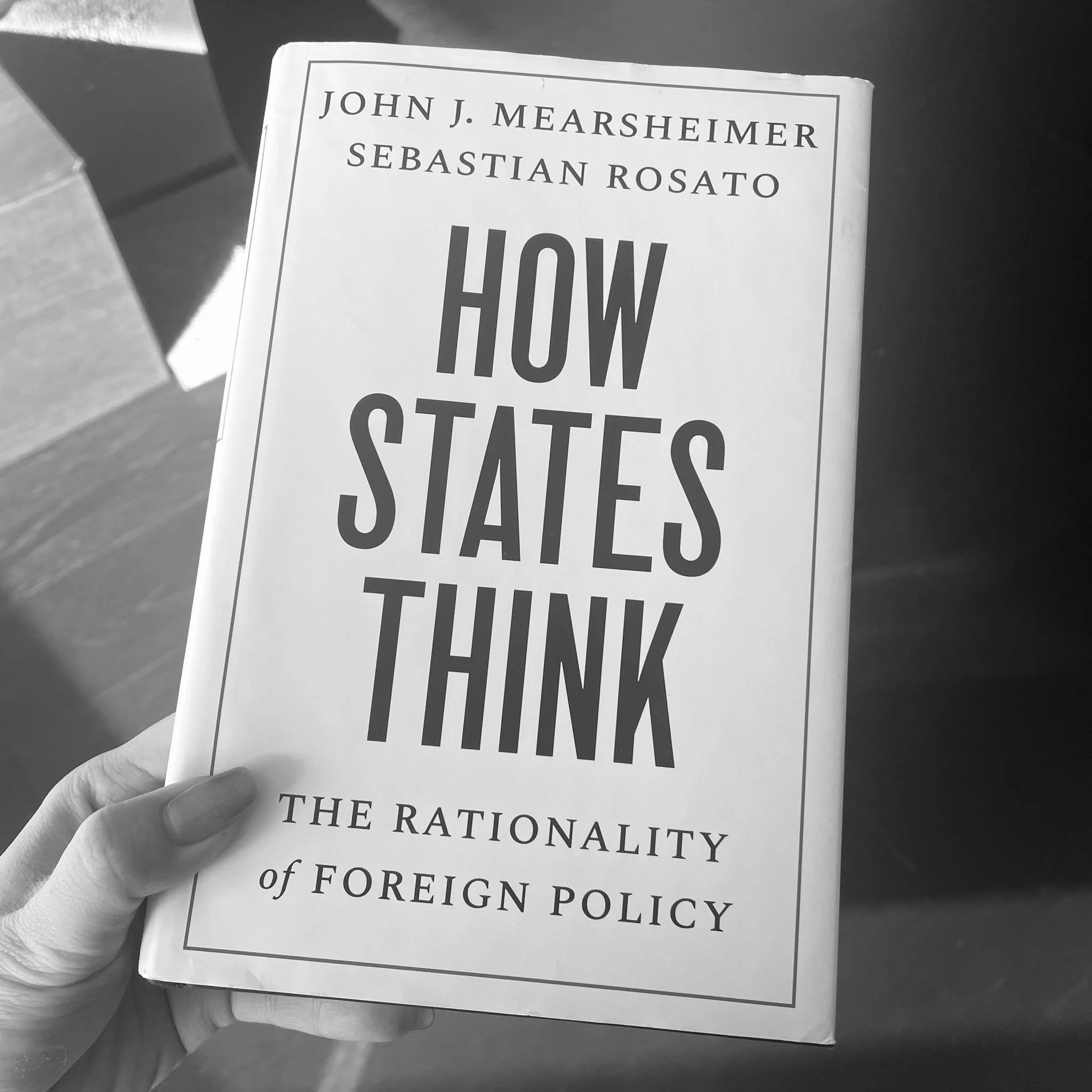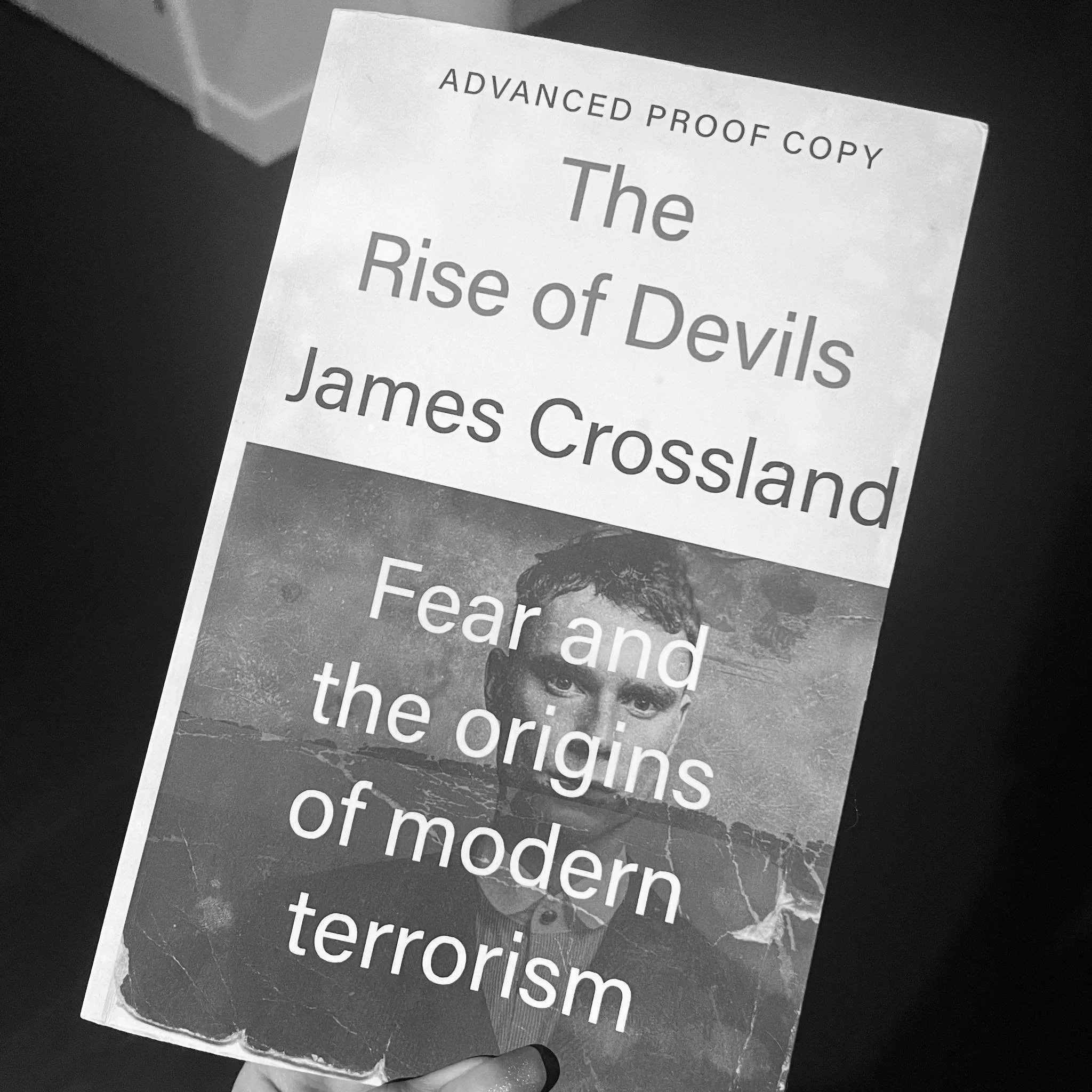How States Think by John J. Mearsheimer and Sebastian Rosato
“Those who cannot remember the past are condemned to repeat it.”
These famous words have been reiterated so many times since George Santayana wrote them in 1905 that they have become a cliché. Mark Twain was probably more accurate when he asserted that “history doesn’t repeat itself, but it often rhymes.”
To pick up rhyming schemes, we examine history. And as we examine history, we are puzzled. Why would a nation initiate hostilities against each other fully cognizant of the repercussions? Why would a state choose certain political strategy when it is obvious that utility can’t be maximized? What ruminations went through the minds of the policy makers and rulers? Are their actions to be dismissed as mere folly, or did they stem from an, albeit elusive, valid rationale?
Do states act rationally?
It has become commonplace for American leaders to dismiss their foreign adversaries as “irrational”. At some point over the past twenty-five years, Saddam Hussein, Mahmound Ahmadinejad, Hugo Chavez, Kim Jong-un, and Vladimir Putin, among others, have been branded “irrational”, “illogical”, “crazy”, “delusional”, or “mad”, and in some cases they have been likened to Adolf Hitler, who is often portrayed as the poster child of irrationality.
Whether this imprudent habit is to achieve political propaganda or American leaders truly believe their enemies are most often irrational, their view has vastly influenced the academic circles of traditional international relation.
Yes, I believe by now we have all heard of the Nobel Prize laurate, Daniel Kahneman, and learned that individuals don’t always act rationally, that individuals aren’t first and foremost foresighted utility maximizers, but react to changes in terms of gains and losses. And yes, I have repeated the word individual three times on purpose. But what about a group of individuals? What about a state? So back to the question, the majority of times
Do states act rationally?
How State Think: The Rationality of Foreign Policy is a book that argues that, throughout history, states predominantly act rationally. Some of the terrorists, fascists, tyrants, and the seemingly insane decisions they have made were in fact, rational. There were cases where rational decisions led to disastrous outcomes and irrational actions somehow achieved positive results. Outcomes and morality should not be what we define rationality. So what defines political rationality? In defiance of the prevalent doctrine of expected utility maximization, the authors bring to the fore two perspectives in reimagining rationality amidst information scarce environments. They accentuate the importance of leaders guided by theoretical frameworks and prioritizing process over outcomes.
The authors argue that majority of times, states act according to goal and strategic rationality at both individual and collective levels. The goal-rational states are primarily motivated to pursue self-preservation or survival and there are two elements central to their approach: decisions are informed by credible theories and a thorough deliberative process. Credible theory refers to a set of realistic assumptions and causal logics, buttressed by empirical claims with solid historical evidence. Deliberation is characterized as a two-step aggregation process, built upon a robust and uninhibited debate and methodical evaluation of options, leading to a definitive decision. If states deviate from these criteria, they will fall into irrationality.
In the framework presented by Mearsheimer and Rosato, non-rational behaviors are considered as anomalies rather than the norm, typically arising from constraints or unpredictable black swan events in international politics. The subsequent narrative finally delves into the empirical question: "Throughout history, do states consistently act rationally?" Applying their theory to two real-world scenarios—grand strategy and crisis decisions—the authors examined ten historical cases, five for each scenario, traditionally perceived as non-rational, aiming to challenge this perspective. These case studies encompass pivotal moments such as Germany's pre-First World War decisions, Japan's strategic maneuvers in the 1930s culminating in Pearl Harbor, and US actions during both the Cuban Missile Crisis and the post-Cold War NATO expansion. The book also acknowledges instances where state actions deviate from rationality, citing examples like the US-backed Bay of Pigs invasion in 1961 and the 2003 invasion of Iraq.
Some of the examples mentioned in the book were intriguing. For example, it is widely believe in the West that Russian president Vladimir Putin’s decision to invade Ukraine was not a rational act. U.S senator Mitt Romney noted that “by invading Ukraine, Mr. Putin has already proved that he is capable of illogical and self-defeating decisions.” In the current days, the only morally acceptable reason for going to war is self-defence, and from the West’s viewpoint, the invasion of Ukraine was nothing but a war of conquest. So with the “unprovoked” assault, Putin joined a long line of irrational tyrants succumbed to his ego-driven obsession with restoring Russia’s great power.
But in fact, Putin and his advisers did, numerous times, expressed their concern thinking in a straightforward balance of power theory, viewing the West’s efforts to make Ukraine a bulwark on Russia’s boarder as an existential threat that could not be allowed to stand. Putin laid out his theory and logic in a speech explaining his decision for war: “With NATO’s eastward expansion the situation for Russia has been becoming worse and more dangerous by the year…We cannot stay idle and passively observe these developments. This would be an irresponsible thing to do for us….it is a red line which we have spoken about in numerous occasions. They have crossed it.” It is worth noting that Moscow preferred to deal with the growing threat on its borders through aggressive diplomacy, but the United States and its allies were unwilling to accommodate Russia’s security concerns. This being the case, Putin opted for war.
Does this make Putin’s action righteous? No, no one is saying that. But, per theory, he wasn’t irrational.
Please don’t shoot the authors yet. It is not their intention to justify the moral righteousness of any violence. There is a powerful tendency to equate rationality with morality since both qualities are thought to be features of enlightened thinking. Yet, rational decisions in international politics just rests on credible theories about how the world works, what the state is trying to achieve, what were the choices, what could be the repercussions, and emerge from a deliberative decision-making process. All of this means that Russia’s decision to invade Ukraine was rational.
There were other interesting examples laid out throughout the book, and overall I did enjoy reading them. Yet there are still some questionable aspects of this book that I would recommend readers to keep in mind while reading.
Upon initial perusal, the book presents a neat and sweeping theoretical set up with thorough historical analyses. However, upon deeper scrutiny, certain conceptual and empirical deficiencies come to light. Initially, the authors critique a range of theories they deem non-credible, including the clash of civilizations and racial theories. Notably, they scrutinize the audience costs theory, which posits that democratically elected leaders excel at signaling resolve in crises due to public commitment pressures, citing its insufficient empirical backing. Yet, this judgement may overlook recent research suggesting the efficacy of public posturing across various regime types. This is particularly relevant as the book heavily relies on references dating back over a decade, prompting reflection on the evolving nature of credibility and the influence of new evidence. Moreover, it raises a deeper and broader question: Who gets to determine what qualifies as credible? What is deemed credible could be later rendered noncredible as new evidence became available and vice versa. the subjective nature of interpretations, shaped by individual experiences and beliefs, further complicates endeavors to establish intersubjective understanding in such evaluations.
In addition, the book's evidence of certain historical events appears somewhat lacking in strength and depth. Concerns arise from serious misrepresentations of key historical cases, notably Japan's actions from 1937 to 1941. The portrayal of Japan as acting with restraint and reacting to Western external aggression contradicts mainstream historiography, rich in evidence from events like the Mukden incident (1931) and the Marco Polo Bridge incident (1937). Japan's invasion of Manchuria, and the Rape of Nanking, the Nanjing Massacre, where Japan military slaughtered 200,000 Chinese in killing contests and tortured 80,000 women and kids during the war is carved in mainstream historiography, there is broad consensus on how Japan's actions during this period were aggressive and expansionist, driven by its own imperial ambitions. In such cases, it is hard to brushed it off as “self-defence acting with restraint”. Such discrepancies cast some doubt on the accuracy and reliability of the book's arguments.
Overall, it is still an interesting read. It is rare to find political rationality defined in other literature, and I appreciate the authors’ detailed theory-based approach and historical case studies.



